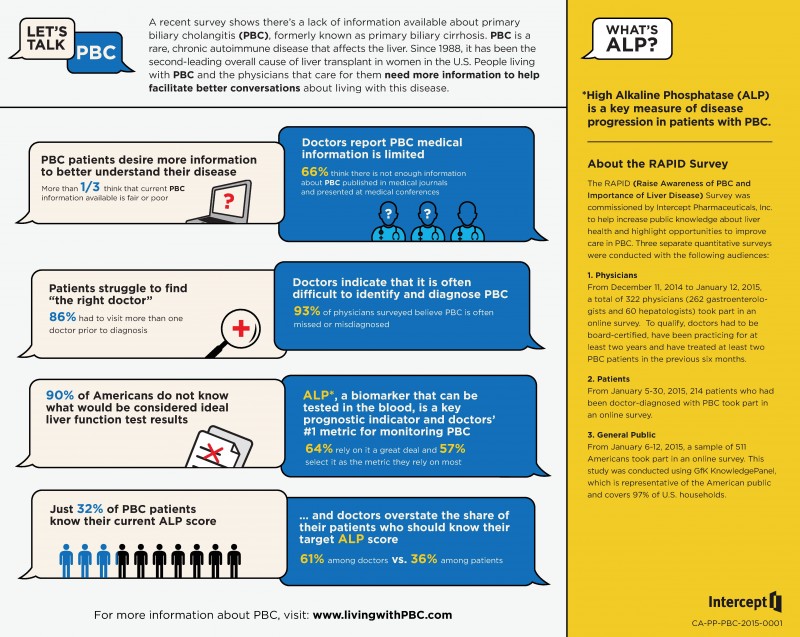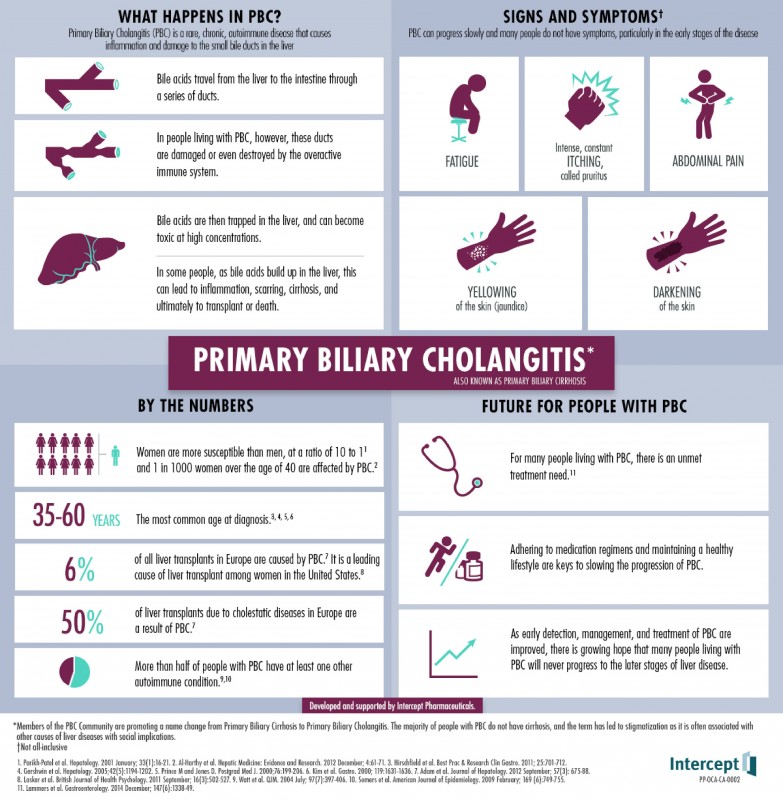Today’s post is a part of the Insider’s Program on Bloggy Moms. All opinions are my own.
Primary biliary cholangitis (PBC) is a rare liver disease that was previously called primary biliary cirrhosis. While you may not have heard of PBC, it affects 1 in 1,000 women over the age of 40. PBC is a liver disease that is usually caused by autoimmune destruction of the bile ducts that transport bile acids out of the liver. When the bile ducts fail to transfer acid out of the liver, the bile acids can get trapped in the liver and become toxic at high levels. This eventually leads to cholestasis.

Common symptoms of PBC:
● Fatigue
● Intense, constant itching
● Abdominal pain
● Jaundice (yellowing of the skin)
● Darkening of the skin
It is primarily a problem for women as 90% of people with PBC are female. Most of the time diagnosis of PBC happens between the ages of 35 and 60 but PBC can present in women younger than 25 in some cases. More than half of people with PBC also have another autoimmune disorder, so if you know someone with an auto-immune disease, educating them about PBC is a great idea. Awareness among doctors is in need of improvement as well, as it’s believed to be often misdiagnosed or underdiagnosed, as 2/3rds of doctors say they wish more research about PBC was available and 1/3 of patients with PBC say they feel information available about PBC is poor or fair.

PBC is a progressive autoimmune disease. Early management of the disease is important to help control symptoms. Since 1988 PBC has been the second-leading overall cause of liver transplants in the US (second only to hepatitis C). Managing symptoms earlier can decrease the odds of needing a liver transplant. With PBC, maintaining a healthy lifestyle and following a treatment regimen is important.
While I haven’t been affected by PBC personally, I know that getting a diagnosis usually leads to wanting to chat with others going through the same experience. When I developed Epilepsy in 2014 I immediately turned to the internet to talk to others who had similar experiences. Just like with epilepsy, many people with PBC need emotional support and will want to speak with others who are living with PBC. With 1 in 1,000 women over 40 having PBC, many people who get diagnosed won’t know anyone else with it, so turning to the internet to find others can be comforting. LivingWithPBC.com is a great place for individuals affected by PBC to get more information and hear from others who are living with PBC. If you want to read stories from people with PBC visiting the patient stories page is a great place to start.
Hi there! I am Emily Evert, the owner of Emily Reviews. I am 28 and live in a small town in Michigan with my boyfriend Ryan and our two pugs. I have a large family and I adore my nieces and nephews. I love reading memoirs, and learning about child development and psychology. I love watching The Game of Thrones, Teen Mom, Sister Wives and Veep. I like listening to Jason Isbell, John Prine, and other alt-country or Americana music. I created Emily Reviews as a creative outlet to share my life and the products that I love with others.
This post currently has 13 responses.
-
Thank you for this post,.. I was not aware of PBC.. But now I know many things about it,..
-
Thank you so much for promoting awareness for this life altering issue. Of course, reading things like this always makes me wonder if I have it, although I probably don’t. I do have Rheumatoid Arthritis, which is a chronic disease that has been affecting me for years.
-
Most informative!
-
I have never heard of this before!! How scary!! Thanks for spreading the word!! I hope they find a cure!! One can only hope there will be a cure for everything some day!
-
I soak up all the medical info I come across, so this nurse thanks you! Autoimmune diseases are so mysterious and can linger for years without an accurate diagnosis or worse, misdiagnosis. I love the infographic that helps explain the condition.
-
I never heard of this before. Which is surprising considering it’s not so rare. Thanks for the information.
-
Oh wow. I have not heard of PBC. There really must not be much out there for it to be unknown by so many. This is great information, and very informative of things to watch for down the road.
-
I know nothing about this. I do have RA and my liver functions are checked every 12 weeks.
-
I was not aware of PBC,thanks for the informative article.
-
Thank you for posting. I do have PBC, and I am always looking for ways to describe and define the disease for my family and friends. It’s a tough one: i don’t “wear” PBC like I do my other autoimmune diseases. It is humane nature to not understand or believe what we can not see. Education is the only way those of us with invisible diseases will gain understanding and compassion.
-
Hello Emily. I was diagnosed with PBC some ten years ago. I have just read an article which depressed me, it is entitled UDCA fails to improve mortality in primary biliary cholangitis. I have been on Ursofalk since diagnosis and will be on it for life. However whilst continuing to browse I came across your very well presented blog with charts for easy understanding. I am shortly going to look at the Living with PBC link but before moving on I wanted to thank you for such a great article.
-
Stephanie: the news about Ursodial is very disheartening, isn’t it. It has been sold to us as our one ray of hope. That said, I can’t rectify this news with the “fact” that our prognosis has improved so much that they decided to change the name from cirrhosis to cholangitis.

I’d never even heard of this before, so this is good to be aware of .